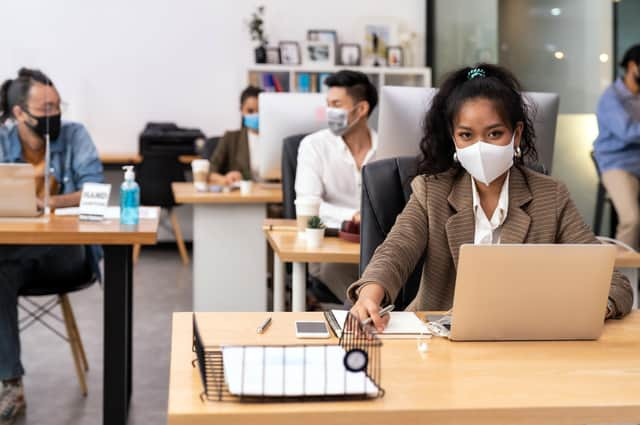Why good mental health is more important in the workplace than ever


We’ve slotted in exercise classes, healthy meals, and downtime in the hours outside of 9-5. But as we’ve come to understand, true wellbeing can’t be achieved in such a silo. And in fact, the most stressful parts of our lives are the hours between 9-5. Our working environments play a crucial role in how we feel.
Before the pandemic, the workplace wellbeing agenda was led by a handful of forward-thinking companies. They recognised the social responsibility of looking after employee mental health, as well as the talent attraction and retention benefits of curating a cared-for environment.
Advertisement
Hide AdAdvertisement
Hide AdMorgan Stanley, for example, appointed a CMO (Chief Medical Officer) to look after employee health and wellness, while start-ups have regularly advertised cycle-to-work schemes, free fruit and ‘creative pursuit’ days, during which you can do whatever makes you feel good.
But not all these initiatives are purely philanthropic. Businesses face a real financial risk in ignoring employee wellbeing. In April 2020, the World Bank Group cited depression and anxiety alone cost the global economy an estimated US$1 trillion per annum in lost productivity.
Moreover, research published by the HSE, Britain’s national regulator for workplace health and safety, found that work-related stress, depression, and anxiety accounted for 51 per cent of all work-related ill health cases between 2019 and 2020.
We know how crucial social interactions are to our happiness levels. They connect us to a bigger picture and root us in a sense of community. Naturally, the pandemic has only strengthened the spotlight placed on workplace wellbeing.
Advertisement
Hide AdAdvertisement
Hide AdWorking from home meant that boundaries between work and life withered away. And alongside the uncertainty and turmoil of the past 18 months, it’s no surprise that the demand for mental health services has risen.
Workplace wellbeing encompasses physical wellness too, which means that ergonomic furniture and proper desk set-ups can’t be overlooked. And to mitigate the risks of viral outbreaks, a safe workplace is one that includes increased airflow and enhanced cleaning regimes.
Studies suggest that workplace friendships play a pivotal role in employee wellbeing. In fact, 70 per cent of employees believe that workplace friendships are the most crucial secret to a happy working life. And on the flip side, the absence of social support at work can lead to loneliness – and eventually – burnout.
When leaders are open about their mental health, it creates an environment where others can be open too. Likewise, workload and unmanageable deadlines have a significant impact on employee stress, so it’s crucial to help instil boundaries, respect them, and be in constant communication about your teams’ capacity. Good mental health, as we slowly emerge from the global pandemic, is more important than ever.